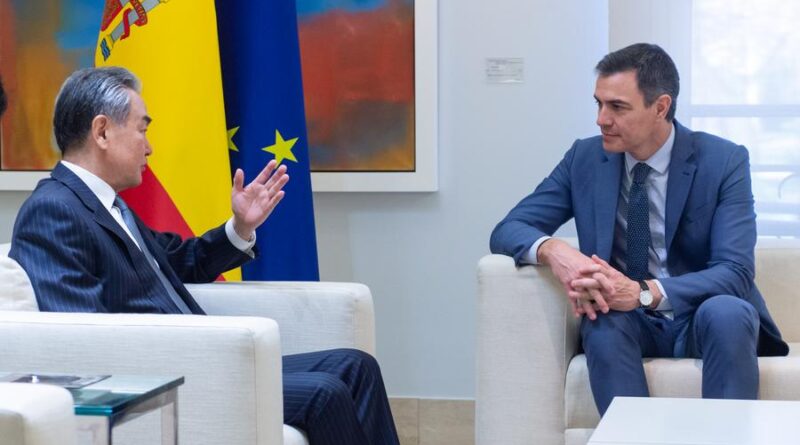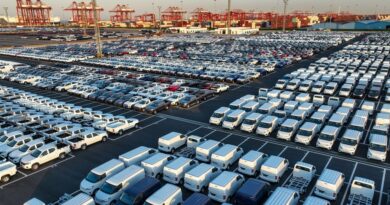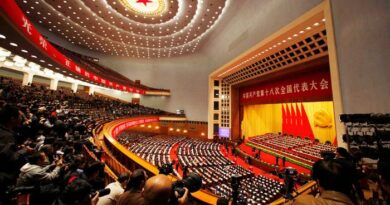Gestures of complicity between Spain and China with a European perspective
XULIO RIOS
The recent visit of the Chinese Foreign Minister, Wang Yi, to Spain has left important messages. The first, the outstretched hand, the willingness to continue promoting bilateral cooperation at all levels. For Beijing, Spain continues to be a “good and reliable partner.” The absence of conflict is a notable characteristic of Spanish-Chinese relations. Good political and diplomatic harmony persists. And when we turn the page on 50 years of bilateral relations and the 20 years of the comprehensive strategic partnership approach, at that moment of inflection and reflection, the proposal is clear: Wang Yi openly expresses China's will to increase cooperation and enhance bilateral ties.
The announcement of the sending of a new young pair of pandas to Spain symbolically certifies the positive atmosphere of this visit, in which he held meetings with his counterpart Albares, also with the President of the Government and with King Felipe VI.
Secondly, the context of the visit and the announcements made by Wang Yi that have resulted in new opportunities for the Spanish agri-food sector (in serious difficulties in recent times) or tourism (reinforced with the visa exemption), but equally in the logistics sector (agreement between BAIC and the port of Ferrol) or in cooperation with third countries (between Telefónica and Ehang).
The advantages of cooperation and the opportunities that China can provide at a time of certain economic morass in Europe are clearly visible to both parties. However, the use will depend on the level of determination applied to said endeavor by each of them.
Currently, China is Spain's first trading partner outside the European Union, while Spain is China's fifth trading partner within the EU. Last year, annual bilateral commodity trade exceeded $50.000 billion for the first time. Spain needs to make progress in moderating the deficit, promoting trade cooperation and, going further, coordinating development strategies.
In summary, it is worth noting a firm will to limit the risk of decapitalization of the relationship between China and Spain, ensuring that it remains at the forefront of ties with the EU. To achieve this, there is nothing better than supporting them with a determined strategic determination.
From Spain to Europe
In the existing debate in the EU regarding the relationship with China, Beijing has always valued Madrid's constructive attitude. Traditionally a supporter of dialogue and rapprochement, Spain participates in defining the common community consensus and, like China, advocates strengthening the strategic autonomy of Brussels. In this perspective, China's commitment to expanding the relationship with Spain is identical to that other one that suggests deepening the relationship with the EU.
Wang Yi, after participating in the Munich security conference, and with an agenda full of meetings in Germany and France, has conveyed to these important countries of the Union his concern about the emphasis given to security, today the favorable argument for appeals to decoupling, given that this does not respond to the reality of the bilateral relationship as a whole.
On the contrary, cooperation that strengthens mutual interdependence constitutes the best asset to advance the establishment of increasingly broad consensus. In this sense, it is especially important to strengthen communication at the highest level. This attitude is particularly appropriate at a time when a new wave of trade tension is predicted between the EU and China over imports of some goods. We should not overlook the lessons learned in past disputes. Each dialogue solution reached reinforces the relationship. Every difference brought to conflict weakens it.
This year, there will be elections in the EU and the US. For both actors, relations with China are of extreme importance. Spain, as well as Germany and France, all relevant economies in the Union, has traditionally opted for realistic, pragmatic and moderate approaches. These are more necessary today than ever to prevent relationships from entering a spiral of instability.
The idea that the benefits of cooperation far outweigh confrontation is a strong message for the EU. Gestures of good will have abounded on this tour by Minister Wang Yi. Spain is eager to manage the bilateral relationship in an advantageous manner. This dynamic can positively influence the general tone of community positions.
With the war in Ukraine entering its third year, an economy in impasse and growing uncertainty regarding the electoral outcome in Washington next November with possible affectation of the transatlantic link, if Brussels does not want to be left out of the game and doomed to growing instability, it needs transcend both prejudices and false complicities and ambitiously explore the horizon of the relationship with China.
The positions of Spain and the EU and China in the face of the complex international situation are not so far apart. Interdependence is not a risk, it is beneficial, and can offer us all an inspiring creative framework. On the other hand, cooperation is essential to be able to successfully face the enormous challenges that global society must face in the coming years, from the technological leap to the ecological transition. Without height of vision, we will not be able to do it well. And with an EU frustrated at not having been able to autonomously draw up its own roadmap, even less so.













